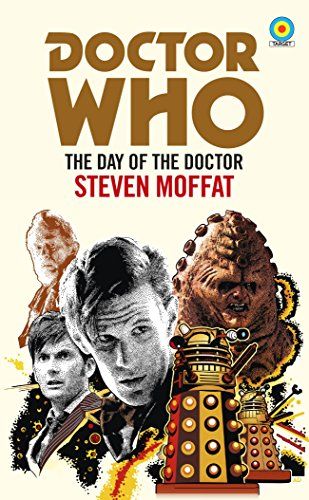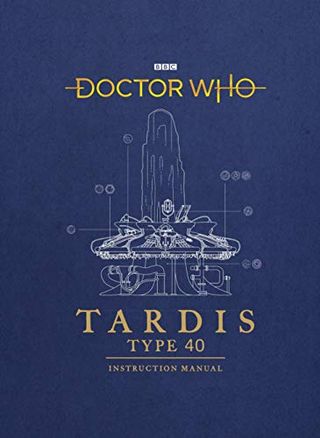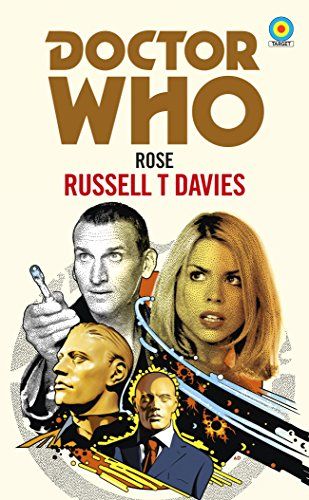Doctor Who: The Power of the Doctor spoilers follow.
Doctor Who is intrinsically queer, and that was true long before John Barrowman's Jack Harkness or Pearl Mackie's Bill Potts arrived on the scene. You wouldn't necessarily know that just by watching Jodie Whittaker's last episode though. But first, some context.
For the past sixty years, Doctor Who has always been a story of change, of a hero who continues to evolve in defiance of the establishment. And most crucially of all, the Doctor has consistently stood up for those who need it most, something which queer viewers, young and old alike, have always found solace in.
So with that in mind, it's strange that the very notion of a queer Doctor has only recently come into play towards the end of Jodie Whittaker's run.
When Chris Chibnall first took the reigns in 2018, there was very little LGBTQ+ representation to speak of – aside from an impressive flip on the 'Bury Your Gays' trope in season twelve's Praxeus. But then something special happened at the end of 2021's Flux.
Viewers who had long shipped Yaz and the Doctor finally saw a tangible example of their love on screen, even if it remained unspoken still at that point. Thankfully, this was officially confirmed just a few months later when Yaz admitted her feelings about the Doctor to Dan in the New Year's Special 'Eve of the Daleks'.
The Sea Devils special at Easter then dived into their romance more than ever before, but so much was still left unsaid and undone. So then, with just one episode to go, fans began to worry that this romance was doomed before it was even given a chance to get going.
But at least there's time in this last episode to reckon with all that, right? It's a 90-minute special, after all, and it's the last time we'll ever see Jodie Whittaker and Mandip Gill play these characters together on screen. So surely, they get a decent sendoff?
Get ready to lower those expectations, because #Thasmin ends with a whimper, not a bang.
So much happens in Jodie's final outing that we won't get into here, but yes, all those reunion scenes broke us too, and sure, the Master probably is gay. But it's important to remember that this isn't just Jodie's final outing. It's Mandip's as well, which is why their final scenes together feel like such a let-down.
After the day is saved, our good Doctor realises that the Master's interference has triggered her next regeneration, prematurely. "It's not right," says Yaz. "We need more time. I need more time."
And it's at this moment that you really feel the love this companion feels for her Doctor. Jodie's character obviously feels it too, which is why she suggests they take one last trip together. And she even lets Yaz pick which flavour of ice cream she wants as well.
Together they sit on top of the TARDIS, staring out at the awe and beauty of space. "I don't want it to end," says Yaz. "My hearts are so full of love for all of you," replies the Doctor. Then, she adds: "I have loved being with you, Yaz."
Surely this is it? This must be the moment when they finally declare their feelings out loud for each other? And perhaps even kiss?
Except, no. There's none of that. "I have loved being with you, Yaz," is the closest we get. Then afterwards, the Doctor simply drops Yaz off and waves at her from a distance as she enters the TARDIS, ready to start her new life as someone else.
It's the kind of wave you might give to a mate before you go off for the summer holidays. Or maybe a farewell to your nan when you're off to the shops to buy her some milk.
Ok, fine, we're exaggerating somewhat, but it's hard to describe quite how disappointing and lacking this final interaction is. Passionate shipping aside, Yaz and the Doctor are the emotional throughline of this entire era, and everything about these last few specials in particular has built up to this moment.
Yet here we are with no real declaration of love or even a kiss for that matter. And while some might argue that Doctor Who isn't really about romance, everyone's favourite Time Lord has certainly dabbled with the occasional kiss before.
No one's asking for a full-blown sex scene here on the BBC at 7pm, but the way that this episode goes out of its way to reckon with their love speaks volumes. And this stings, even more, when you consider how long it took for #Thasmin to even be acknowledged in the first place.
Admittedly, the relationship grew "organically out of the material" and Mandip's performance, as Chibnall put it to us recently in an exclusive interview. When we asked if, in hindsight, he wished #Thasmin had been introduced sooner, Chris said the following:
"I'm happy with the slow-burn drip-feed approach because I think that hopefully, you should feel like you want more because it'd be worse if you want less."
"I feel like the story shape of it is really nice, but I think it feels right for the Doctor," adds Chris. "Let's be honest: it's ultimately a doomed romance because the Doctor is not going to be the Doctor quite soon, you know? So, really, it's designed to come to that point where it can't."
"We've all had those romances where you go, 'We should be together, but it's just impossible.' And that's the story we wanted to tell about that."
That's all well and good, but the problem here is that there isn't really much of a love story whatsoever. It's all "doomed" and no "romance", which isn't really a good look when it's also the very first time that a Doctor has even been portrayed in such a queer light.
In his answer, Chibnall also suggested that "it's very hard to do those stories" in Doctor Who, referring to romance in general. "You can't keep it going for that long because there's always planets to save or monsters to deal with, and all of that kind of stuff."
But that doesn't account for why this particular romance ends with so much less passion and fanfare than others seen on the show.
If you're on the hunt for excuses still, you could also argue that the Doctor's behaviour here is actually in line with what's been established beforehand in the Sea Devils episode. Because there, Jodie's character admitted that she's been keeping Yaz at bay for the following reason:
"I can't fix myself to anything. Anywhere. Or anyone. I've never been able to. It's what my life is. Not that I wouldn't want to. Because I might. But if I do fix myself to somebody, I know sooner or later, it will hurt."
But then, if that's the case, why include this story at all? It's one thing to casually introduce a doomed romance, particularly for someone who's as aloof as the Doctor, but it's another to doom the show's first central queer romance before it's even had a chance to bloom.
When Yaz says, "It's not right," she's not wrong. Because we did "need more time". That's something the Doctor usually has in spades, but here, we needed more time to develop #Thasmin's relationship and to finally centre queerness fully in what's long been a queer show.
To do anything less is a disservice to both of these characters and also the show's considerable LGBTQ+ fanbase. And most importantly of all, what does this say to all the young queer people watching, the ones who saw themselves in the Doctor and Yaz's growing affection for each other?
We suspect that the next era of Doctor Who, ushered in by Russell T Davies, will be intrinsically queer like never before. And that will be sorely needed — more than ever after this.
If only we could jump ahead to next year's 60th anniversary specials now with a TARDIS of our own.
Doctor Who's 60th anniversary specials will air in November 2023 on BBC One in the UK. In the US, the show airs on BBC America, with series 1-12 available on HBO Max. Classic Doctor Who streams exclusively on BritBox in the UK.





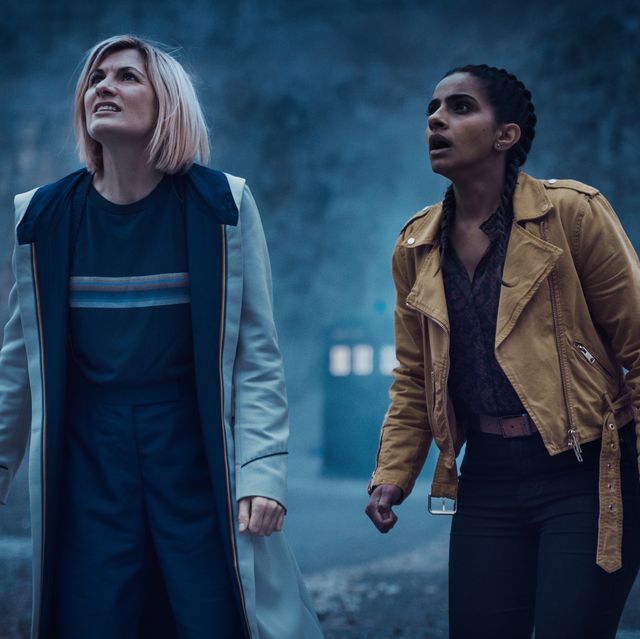









![Doctor Who: The Series 13 Specials Steelbook [Blu-ray] Doctor Who: The Series 13 Specials Steelbook [Blu-ray]](https://hips.hearstapps.com/vader-prod.s3.amazonaws.com/1665652305-51YMtNr8LwL._SL500_.jpg?crop=1xw:1xh;center,top&resize=320%3A%2A)
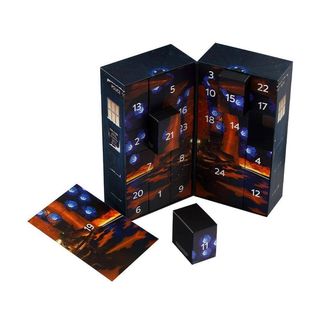


![Doctor Who - The Abominable Snowmen Steelbook [Blu-ray] [2022] Doctor Who - The Abominable Snowmen Steelbook [Blu-ray] [2022]](https://hips.hearstapps.com/vader-prod.s3.amazonaws.com/1665652234-4193iFxIghL._SL500_.jpg?crop=1xw:1xh;center,top&resize=320%3A%2A)
![Doctor Who Am I [Blu-ray] Doctor Who Am I [Blu-ray]](https://hips.hearstapps.com/vader-prod.s3.amazonaws.com/1665652489-41DNIWCj4nL._SL500_.jpg?crop=1xw:1xh;center,top&resize=320%3A%2A)

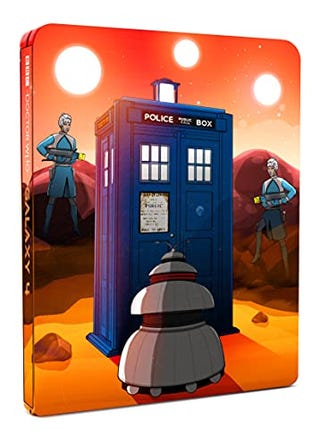
![Doctor Who - Complete Series 12 [DVD] [2020] Doctor Who - Complete Series 12 [DVD] [2020]](https://hips.hearstapps.com/vader-prod.s3.amazonaws.com/1606311877-41aLUJcRaJL.jpg?crop=1xw:1xh;center,top&resize=320%3A%2A)
![Doctor Who - The Collection - Season 23 [Blu-ray] [2021] Doctor Who - The Collection - Season 23 [Blu-ray] [2021]](https://hips.hearstapps.com/vader-prod.s3.amazonaws.com/1635171605-41155pvA3WL._SL500_.jpg?crop=1xw:1xh;center,top&resize=320%3A%2A)
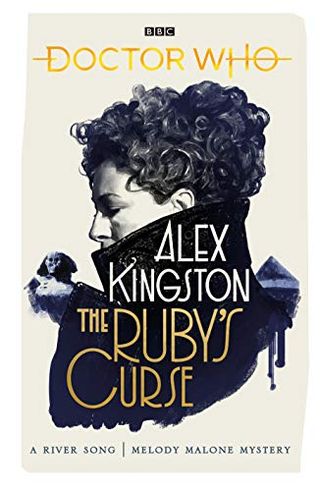
![Doctor Who The Complete Series 10 [DVD] [2017] Doctor Who The Complete Series 10 [DVD] [2017]](https://hips.hearstapps.com/vader-prod.s3.amazonaws.com/1555513915-51pz4VQ52vL.jpg?crop=1xw:1xh;center,top&resize=320%3A%2A)
![Doctor Who - The Complete Series 7 Steelbook [Blu-ray] [2020] Doctor Who - The Complete Series 7 Steelbook [Blu-ray] [2020]](https://hips.hearstapps.com/vader-prod.s3.amazonaws.com/1606311641-61TeI7E5OtL.jpg?crop=1xw:1xh;center,top&resize=320%3A%2A)
![Doctor Who - Complete Specials (The Next Doctor/ Planet of the Dead/ Waters of Mars & Winter Specials) [DVD] Doctor Who - Complete Specials (The Next Doctor/ Planet of the Dead/ Waters of Mars & Winter Specials) [DVD]](https://hips.hearstapps.com/vader-prod.s3.amazonaws.com/1555660608-51aDDWtuziL.jpg?crop=1xw:1xh;center,top&resize=320%3A%2A)
